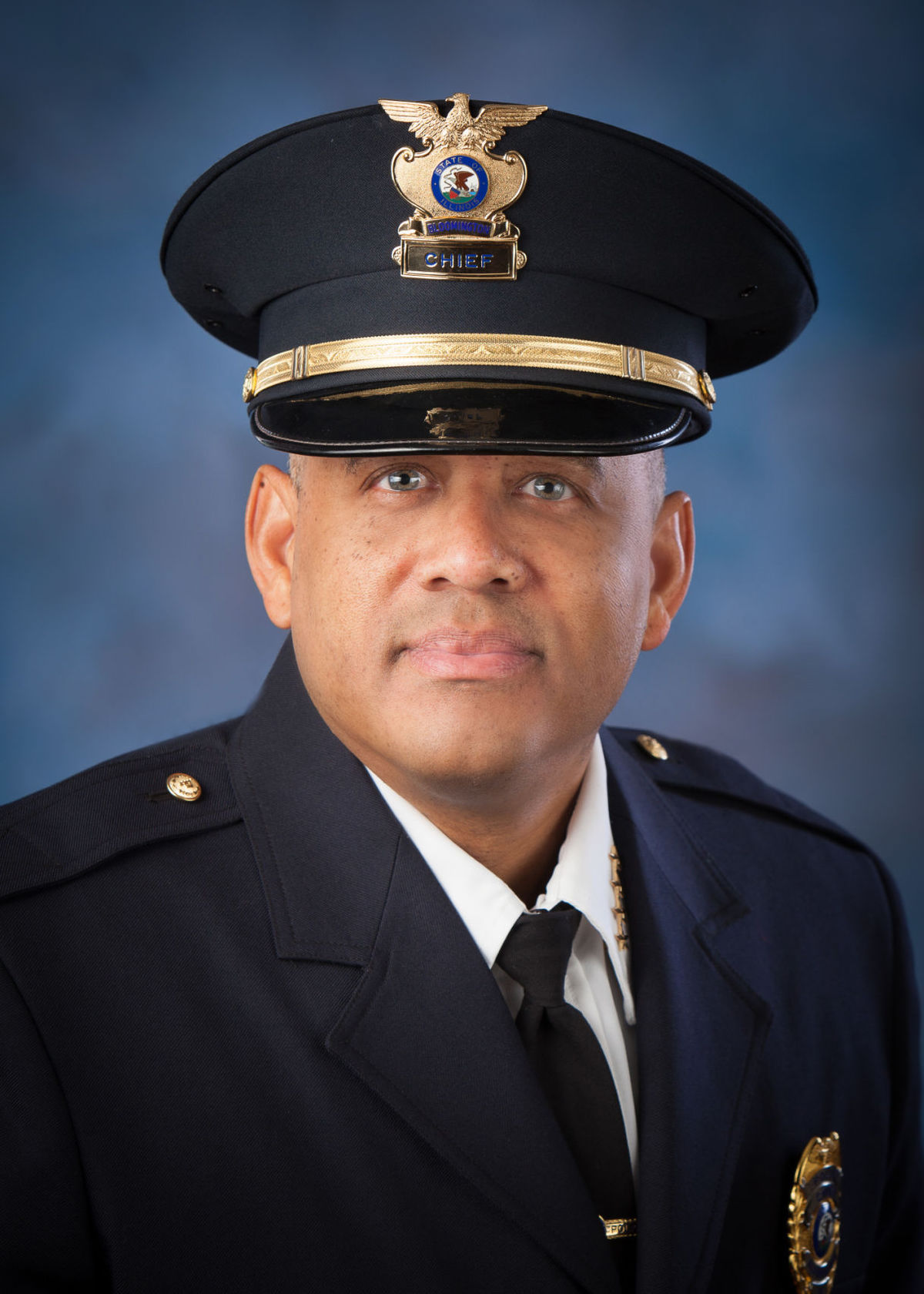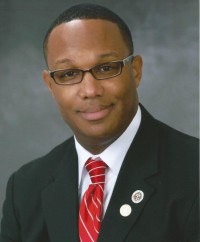To fix the flaws or abuse in the system, citizens must be willing to use the system’s resources to make their voices known in official channels, according to a local leader of the African-American community. Bloomington’s police chief concurs with him on the need for “open channels” between law enforcement and citizens.
At Monday’s vigil commemorating nationwide victims of recent violence and racism, Quincy Cummings, head of the Bloomington-Normal NAACP, emphasized the need for those who feel they have experienced police mistreatment or discrimination to come forward. Citizens and local police officials joined in the event, and Cummings noted top cops must be aware a problem exists to adequately address it.
In the end, he held “we have to hold ourselves accountable for being the community we want to see.” He argued that thanks to cooperative efforts, “we have the ear of local law enforcement.”
“The problem is, a lot of times, people don’t complain,” Cummings said. “In order to hold police accountable, you have to go and fill out a formal police complaint. Even if that means calling the NAACP to go with you to do it, whether it means involving the ACLU, whatever, that has to happen.
“Police are looking at data, and if they’re looking at complaints and seeing a low volume of complaints for the year, then they don’t see a problem. It doesn’t matter what people are saying on the street. This is what we have to do.”
NAACP has worked extensively through “open channels” with local law enforcement in part through the Minority and Police Partnership of McLean County. The Bloomington Police Department is a charter member of MAPP, which was developed with NIOTBN support, and in the wake of Ferguson and Baltimore and a local NIOTBN/NAACP community/police forum in early 2015, the BPD launched annual public training sessions to demonstrate and gather citizen input on real-world police procedures and ramped up minority officer recruitment.
A sign of the progress the BPD has made in the communities was last night’s standing ovation for local police at the First Christian Church vigil. BPD Chief Brendan Heffner hailed Monday’s event and its commemoration of officers and citizens alike, arguing “any loss of life is tragic.”
“The community realizes this,” Heffner said. “We don’t always know the reasons for certain things, but any time we’re together, we’re communicating, it’s always positive.
“Having that dialogue will also help us if something occurs, cause (the community knows) we’ve done that. We didn’t just get together now – we’ve had ongoing dialogue. We may agree to disagree, but we’ve had a dialogue, and we’ve worked together for what we believe is best for the community.”
The Dallas police shootings were “a very stark reminder of what we face,” the chief acknowledged. Today’s officer must possess “the right mindset to be prepared for anything and still do our job in a professional manner,” he stressed.
Illinois’ data collection law established a multi-year statewide study of traffic stops to collect data to identify racial bias. Consistent with and in addition to state-mandated officer data collection, the BPD collected information on passenger race and gender data, specific offense, exact location of the traffic stop, vehicle registration number, parole or probation status of the driver, and expanded racial categories.
Here are some further insights on profiling and data collection from the BPD:
Q. What is racial profiling?
A. Profiling is defined as the detention, interdiction, or other disparate treatment of any individual on the basis of racial, ethnic, age, gender, or sexual orientation of that individual.
Q. Why did the Bloomington Police Department collect more data than state law mandates?
A. As allowed by the law, we collect additional data to enhance anticipated future statisticalanalysis. More and richer data increases the opportunity for deeper analysis, resulting in more reliable conclusions.
Q. What do I do if I think I am a victim of racial profiling by Bloomington Police?
A. Pick up a copy of the Bloomington PoliceDepartment’s Citizen Complaint Form at the police facility at 305 S. East Street in downtown Bloomington. The forms are also available from the City Clerk’s office at Bloomington City Hall.
Q. What can I do to help identify and prevent racial profiling?
A. Be patient, cooperate with law enforcement when stopped for a traffic violation, and support statistically reliable data analysis. Report suspected racial profiling and encourage recruitment of minority police officers. Most importantly, obey traffic laws and drive safely.
Q. Who do I contact if I have questions about data collection or racial profiling?
A. The Bloomington Police Department, Office of Public Affairs, off the second floor lobby of the police facility at 305 S. East Street. Call (309) 434-2355 or inquire online at police@cityblm.org .


